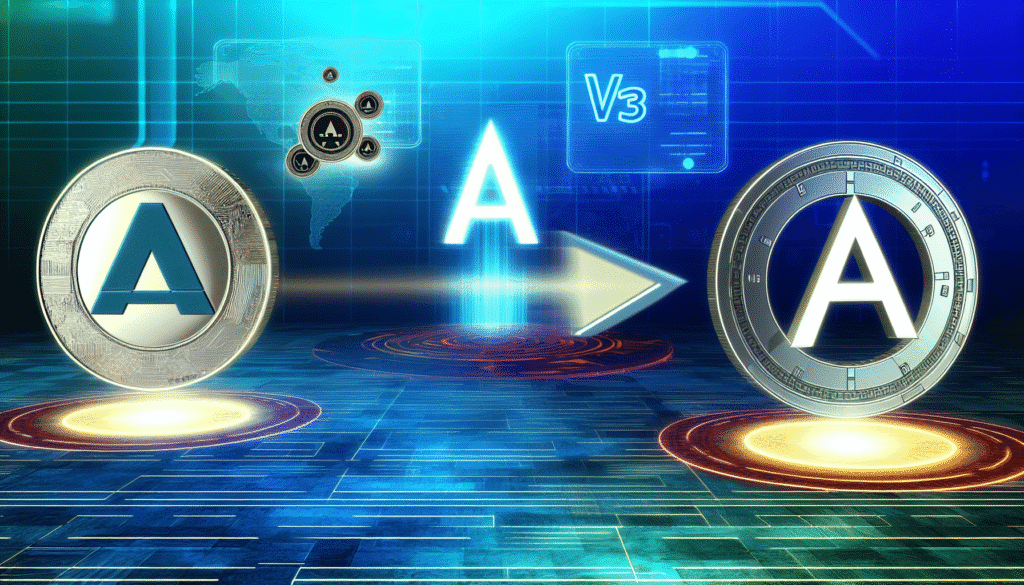
Aave has officially extended its reach beyond Ethereum-compatible networks. Its launch on the Move-based Aptos network signifies a pivotal change for the protocol, highlighting its flexibility and ambition to become a universal liquidity layer.
Summary
- Aave introduces V3 on Aptos, marking its first deployment on a non-EVM blockchain.
- The initial markets include APT, sUSDe, USDC, and USDT, featuring scalable supply and borrow limits.
On August 20, DeFi lending platform Aave announced the mainnet launch of its V3 protocol on the Aptos blockchain. This deployment, carried out by Aave Labs for the Aave DAO, is the protocol’s initial launch on a non-EVM chain, breaking a five-year tradition of existing solely within the Ethereum Virtual Machine ecosystem.
The initial market will accommodate Aptos (APT), sUSDe, USD Coin (USDC), and Tether (USDT), with supply and borrow limits set to adapt to user demand. Simultaneously, developers will gain access to robust infrastructure for building on-chain financial applications.
Aave V3 on Aptos: Technical achievement and strategic growth
Aptos, emphasizing high throughput and sub-second finality, has fostered a growing stablecoin economy worth around $1.3 billion, mainly in USDT. For Aave, which boasts over $50 billion in historical net deposits, this presents a new asset pool to leverage.
The integration seeks to unlock new collateral options, particularly liquid staking tokens. With only 8.1% of staked APT currently in liquid staking tokens compared to 76% natively staked, Aave and Aptos see a substantial opportunity to enhance the borrowing and lending market on this chain.
As per the press release, deploying Aave V3 on a non-EVM chain necessitated considerable technical efforts. The protocol was fully rewritten in Move, and its front end and software development kit were reconstructed, with its business logic adapted to operate on the Aptos virtual machine.
Security-first approach
Aware of the significant risks associated with launching on a new VM, Aave Labs implemented a stringent security framework for the project. This involved comprehensive architecture reviews and audits from leading firms, including Zellic, Ottersec, and Certora, according to Aave.
A Cantina mainnet capture-the-flag competition further tested the code, and an ongoing $500,000 bug bounty program payable in GHO emphasizes a commitment to the protocol’s security-first principles.
Connecting Ethereum-based DeFi with a non-EVM blockchain, Aave V3’s deployment on Aptos signifies the changing landscape of multichain finance. For Aptos, this launch establishes it as a promising venue for scalable DeFi, setting the stage for future protocol expansions and a new chapter in cross-chain liquidity.

